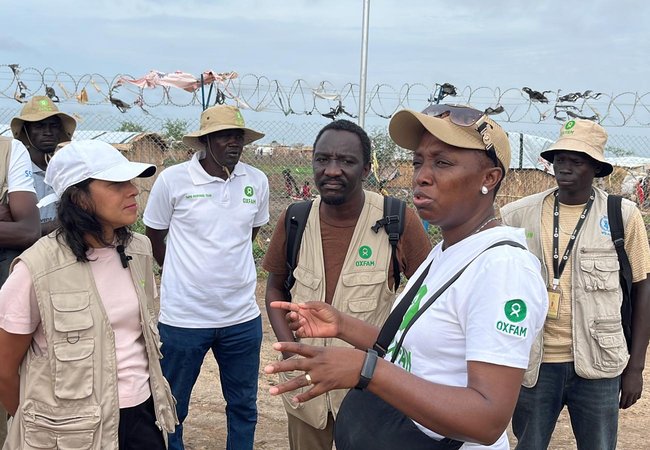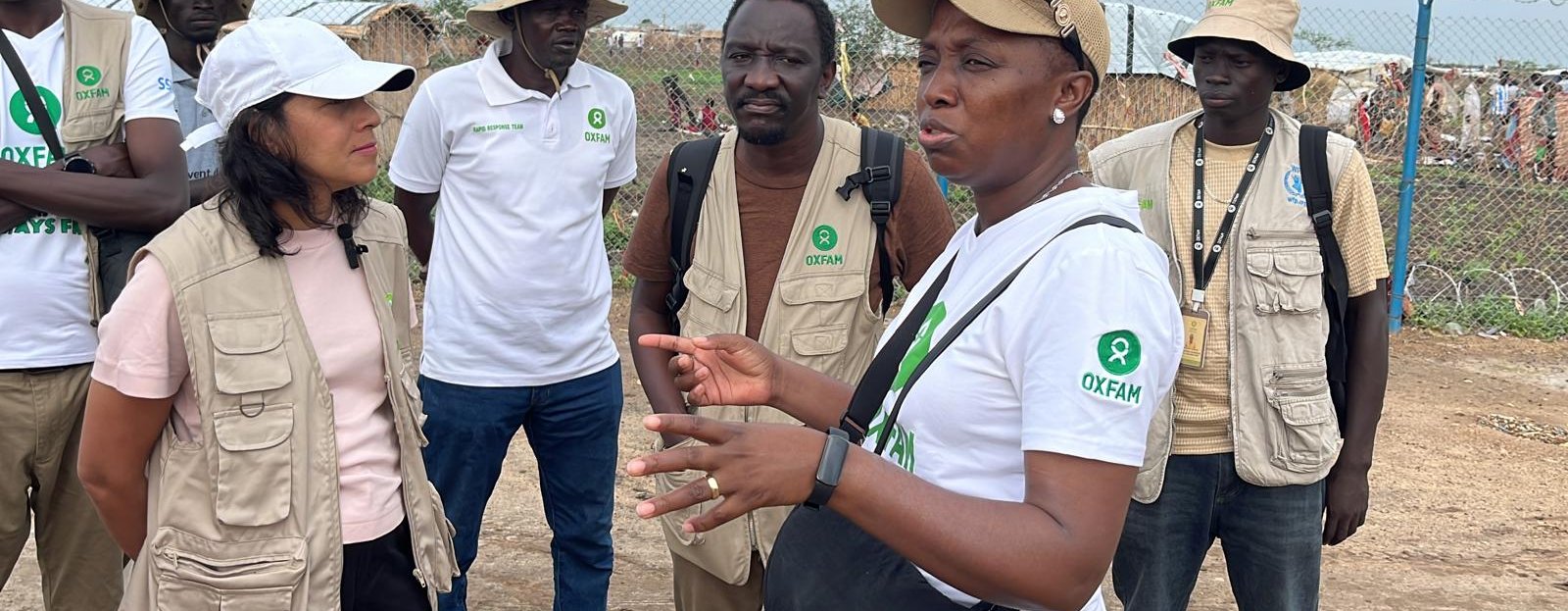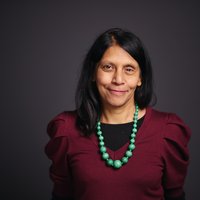

Sudan: The worst humanitarian crisis of all
In a world where humanitarian crises have to vie for attention, Sudan too seldom makes the headlines. It is, however, the worst of them all. Almost nine million people are living in or on the brink of famine in the region. More than 12.7 million — nearly one-third of the population — have been forced to flee their homes, 3.7 million of them to neighbouring countries.
A report published jointly this week by Oxfam and other humanitarian organisations that have been responding to the crisis, The Unravelling of the World’s Largest Humanitarian Disaster: From the Sahel to the Red Sea, makes clear the full horrifying scale of what is unfolding in real time in Sudan.
Aid cuts by governments around the world and other key donors, will severely hamper humanitarian efforts, putting millions more lives at risk.
Every time I visit the region – the embedded report was filmed last year at a large refugee processing and transit centre in Renk in South Sudan, averaging between 1,000 and 1,400 arrivals each day – I find myself asking how we could have allowed such a tragedy to unfold in plain sight such a tragedy to unfold in plain sight.
The region has not one but two crises running concurrently. Climate change has long been devastating communities across South Sudan, manifesting in recurrent floods and prolonged dry spells, further compounded by the recent El Niño phenomenon. The war that has also been ravaging Sudan for two years is meanwhile pushing the suffering out to neighbouring countries and it is beginning to threaten stability throughout the region. These include South Sudan and Chad, where conflict, food insecurity and climate shocks have rendered them ill-equipped to manage the influx of refugees.
At a time when governments around the world are scaling back on their international aid commitments, more than 30 million in Sudan are in urgent need of humanitarian help – the highest in a single country in recent history. It is frankly pitiful that only 10 per cent of this year’s UN humanitarian appeal for Sudan has been met to date.
Oxfam is, however, committed to helping these communities adapt to the changing climate through resilience programming. By focusing on sustainable practices, we aim to reduce dependency on aid and support local initiatives to combat and adapt to these climatic challenges. Food insecurity must be considered more holistically, as adequate nutrition and play essential roles in tackling rising hunger. Poor water, sanitation and hygiene is closely linked to the spread of diseases and malnutrition, which weaken the immune system and can prevent the retention of nutrients required to survive.
Our work in South Sudan remains focused on the most vulnerable populations, including those displaced by regional conflicts and natural disasters. These individuals need more than just food; they require comprehensive support that includes access to education, governance, and opportunities for economic stability and dignity. Oxfam is dedicated to providing holistic support to help these communities rebuild and thrive.
The impact of past crises, including the COVID-19 pandemic, has severely disrupted education, particularly for girls. Ensuring that girls can return to and stay in school is crucial for the future development of South Sudan. Oxfam is committed to supporting educational initiatives that prioritise female learners, helping them overcome barriers and achieve their full potential
Oxfam cannot take sides in any conflict, but it recognises that the local communities in the region have the deepest understanding of the causes and are therefore best placed to navigate the way towards peace. We are dedicated to working closely with local peacebuilders to ensure that our humanitarian response supports and reinforces their efforts. In the meantime, we call on parties to the conflict to allow and facilitate rapid and unimpeded passage of humanitarian relief for civilians in need which is impartial in character and conducted without any adverse distinction, in accordance with International Humanitarian Law.
There are those who talk about compassion fatigue, but, even though there are so many humanitarian crises ongoing around the world at the moment, what is happening in Sudan cannot and must not be ignored.
